Pristina – Textbooks in Kosovo: ESI call for reform
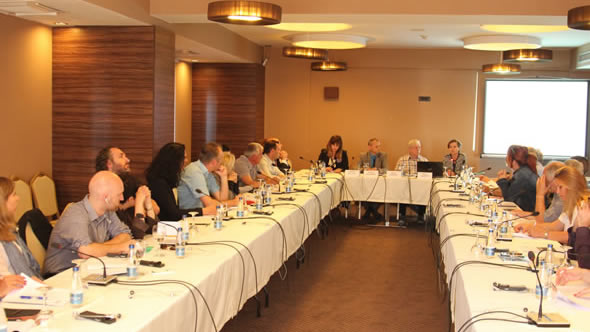
ESI discussion paper: Books and Teachers – The Great Debate on Education Kosovo needs in 2015. Albanian translation: Librat dhe Mësimdhënësit – Për një debat kombëtar mbi arsimin
On 23 June 2015, ESI organised a policy discussion on education in Kosovo: Textbooks in Kosovo, a call for reform. Representatives from institutions working on basic education participated and contributed to the conversation: the Ministry of Education; Science and Technology (MEST); Departments of Education (Pristina); Kosovo Education Center; Kosovo Pedagogical Institute; Members of Kosovo Parliament; USAID Basic Education Program; GIZ Capacity Development in Basic Education; Teacher's Union representatives; and teachers, school directors and civil society organisations working on education.
This policy discussion was the first public forum where we presented our findings, after months of closed meetings with officials in Pristina, MPs, the Municipality of Pristina and in schools across Kosovo.
ESI research on Kosovo education
Education is key to economic growth and development. Especially in Kosovo, a country with the youngest population in Europe, half of which are under the age of 26. A quarter of the population is enrolled in school at any given time. In the coming decade, these students will be leaving the education system and will face a most uncertain future.
Over the last year ESI conducted research on basic education in Kosovo, with the aim of contributing to the debate on the future of Kosovo schools. We began with the goal of suggesting policy measures that might prepare the next generation of Kosovars to meet the professional challenges they will likely face.
During our research, we visited dozens of schools where we spoke with civil servants in ministries and municipalities; education inspectors; school principals; school librarians; textbook authors; and education consultants. We sat in classrooms in mountainous rural areas on the border with Albania, and in schools in the centre of Pristina. We visited Serb-language schools, as well as in those with large numbers of Roma and Ashkali students. In all of these locations we spoke with the teachers about their first-hand experiences working the Kosovo education system.
Focus on textbooks
What we heard was that the problems enveloping education in Kosovo are enormous. From lack of school space and equipment, to lack of discipline and the politicisation of schools. Teachers primarily complained about the lack of support they receive. More specifically, with limited resources available for schools, textbooks are the only tool teachers have access to in order to teach their classes. Textbooks are provided free of charge by the Ministry, to all students and teachers in grades 1-9 throughout Kosovo. But the quality of these textbooks is often poor.
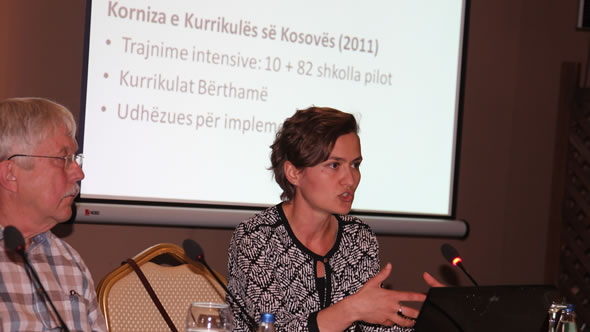
"We found that for issues of quality of education, most often it is teachers who are blamed. "They are not motivated enough" "They are not well trained" "They don't prepare well for class" – are some of the answers we kept hearing from people we spoke to as we were doing field research…But it is wrong to blame only teachers for lack of quality of education in Kosovo. Kosovo teachers are themselves a product of the Kosovo education system, which has not been performing well. They need support to be able to do their work well." – Besa Shahini.
Teachers in Kosovo do receive a significant amount of support in the form of training. However, these trainings usually address the education process or teaching methodology, and rarely the content to be taught in the classrooms. And it is in the area of content that teachers are mainly failing. Besa Shahini noted:
"A German Development Cooperation (GIZ) project in Kosovo tested a thousand teachers of mathematics and sciences of grades 6-9, as well as grade teachers who teach mathematics to grades one – five, and found that on average, they scored less than 40 percent on tests devised to match the subjects and levels they were teaching."
Since 2013, the Ministry has been organising these mass trainings for the new Curriculum Framework (2011). It brought many changes to the education process: grouped the courses into "fields of study," such as "sciences" that encompasses physics, chemistry and biology. It changed the way students are assessed, and put more emphasis on mathematics and less focus on languages.
ESI sat in many of the trainings throughout summer 2014 to observe the process of communicating these changes to teachers. What we noticed is that the curriculum changes left teachers stressed and confused, and everyone else in the education system and observers doubtful that this will improve education quality. Teachers continuously asked how they are expected to teach the new curriculum with the old textbooks.
Textbook quality
For our Policy Discussion we invited participants who had analysed Kosovo textbooks and could speak to their quality:
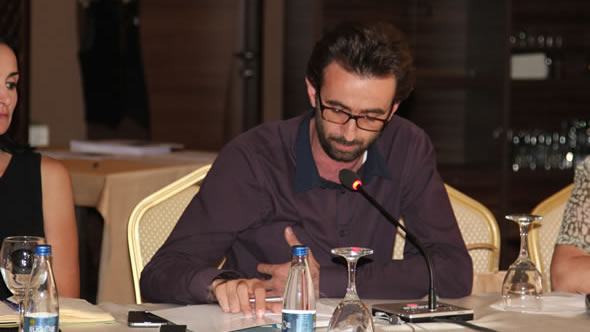
In 2010, Jusuf Thaçi (an education expert) and the Balkan Investigative Reporting Network (BIRN) published a study analyzing sixteen textbooks that covered biology, geography, history and civic education for grades six to nine. The report identified an overload of information, unexplained information and turgid texts (such as 20 facts expressed within four lines). Books failed to encourage critical thinking and to meet basic gender and democratic standards. There were also many inaccuracies and inconsistencies.
In 2012, Thaçi returned to the issue to see whether publishers had addressed any of the mistakes that the initial study found; in most cases no changes have been made.
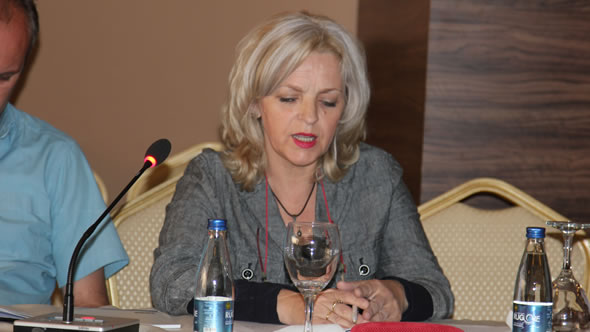
In 2013, the Kosovo Pedagogical Institute analysed all nine textbooks used in Kosovo schools for teaching the Albanian language. They concluded:
"Didactic material in some textbooks is not chosen well and not always does it allow students to work independently, think critically, debate, experiment and apply their knowledge in practice."
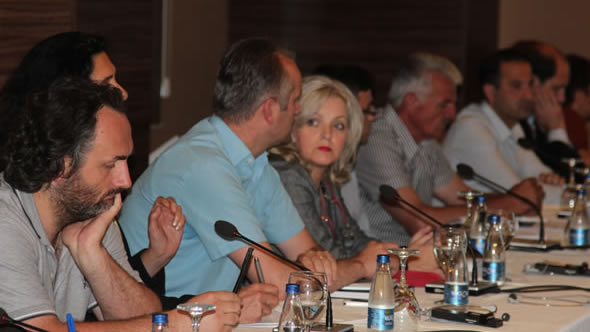
In 2014, Ardian Gojani, who has a PhD in Physics and is a professor in Kosovo and Japan analysed the physics textbooks used in Kosovo for grades six-nine. He found numerous fundamental scientific inaccuracies.
"Besides scientific mistakes, the books are ridden with technical, language and pedagogical mistakes as well…These books should not be allowed in circulation or should have been edited and reprinted before being allowed in classrooms."
Concrete reform proposals
After presenting all these ideas to stakeholders in Kosovo we concluded that it is paramount to change textbooks as soon as possible. Kosovo already spends six-seven million Euro per year on textbooks for primary and lower secondary schools. Since the budget is already allocated, the question is how to best put them to use.
For this we recommended a list of concrete next steps, as ESI senior analyst Besa Shahini outlined:
"It is important to establish a 'Textbook Commission' in Kosovo. I am calling it a commission but it can be called anything. It should be a permanent body, which is responsible for reading, reviewing and approving textbooks. Today, the Ministry of Education has a Division that deals with curricula and textbooks. There are five people who work in the division but nobody on textbooks. This has to change.
The Commission should review the textbooks in use in Kosovo today, to see if they meet the Kosovo Standards for Textbooks, and identify which ones must be changed first. The process of producing new books should not be rushed, even though it is urgent. The current generation of textbooks was produced in three months and this results in inadequate material.
For some subjects, such as the sciences and mathematics, quality textbooks could be translated from education systems that are similar to Kosovo's, but that have produced good textbooks. Albania has been successful and Kosovo could use this model.
In the mean time, training programs must be devised for the authors, editors and illustrators of textbooks.
Rewriting textbooks is only one of the many changes that needs to happen in order to provide students in Kosovo with an education that will prepare them for the future. However, without better textbooks, there is no hope for improved quality of education."
Here you can find the presentation in English and Albanian.
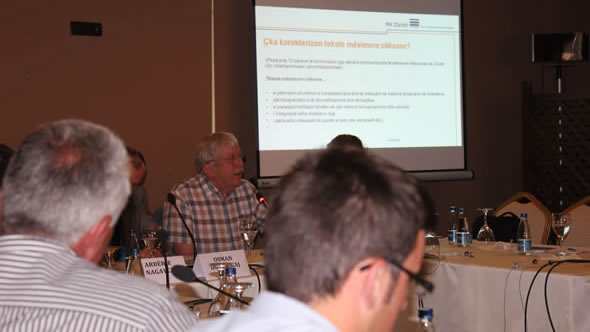
The Swiss textbook experience
In 2011, after the new curriculum was adopted, the Ministry of Education also adopted the Kosovo Standards for Textbooks in an attempt to address the quality of textbooks in Kosovo. These standards have not been implemented to date. Basil Schader from the Pedagogische Hochschule Zürich, was key in drafting the standards, together with the Kosovo Pedagogical Institute. We invited Mr. Schader to share with us his experience from Switzerland:
"In Switzerland, textbooks are very important for teaching. They ensure up to date information and exercises in class. Good textbooks guarantee compatibility with the curricula…they also support the independent learning by students. They need to contain a lot of attractive and diverse exercises. In addition, good textbooks must integrate new media.
Textbooks must not be written by university professors only. The development of textbooks must include teachers. The textbook then needs to be tested and piloted in schools. In addition, good textbooks support teachers in their work by providing them guidebooks that provide methodology and additional exercises."
The Ministry of Education perspective
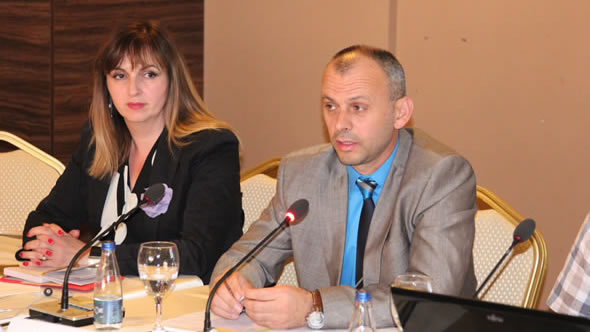
Mr. Buleshkaj was recently appointed advisor to the new Minister of Education. He spoke of the need to change textbooks and thanked ESI for organising an event where models of how improve the books can be discussed.
"Whether we need new textbooks is not an issue any more. It is how this will be done… Our textbooks have enough content, it is just presented in a way which is not appropriate for schools. Our textbooks were largely drafted by academics with little or no input from teachers. This has to change."
He also announced that the Ministry is now in the process of establishing the Textbook Commission that ESI has been advocating for months:
"We are now in the process of establishing the Textbook Commission – well Council – which should have been in place many years ago already. The Council will look at the procedures for drafting textbooks and how they are implemented. We hope to have Ms. Shahini as a member of this Council, together with two other participants here who are also not part of government institutions but who have looked at these issues and hopefully could help us find the best model that we can implement in Kosovo."
Pristina municipality perspective
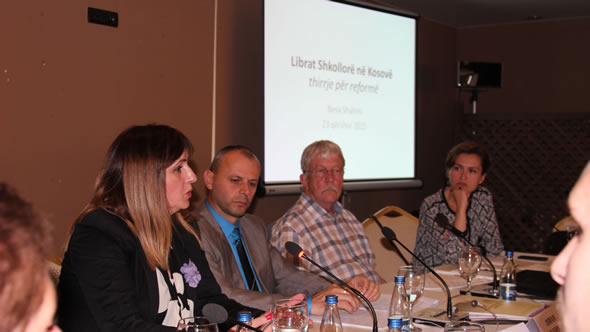
Our fourth panellist discussed the importance of reading and literacy and how quality books can make a difference. Arbërie Nagavci is the Director for Education in the Municipality of Pristina. She started a project called "Prishtina Lexon" – Prishtina Reads – which organises book fairs with the aim of inspiring a love of reading among students.
After discussions with ESI in spring, Ms. Nagavci embarked on a more ambitious project of taking the books to school libraries, making the texts more readily available to students. As was outlined in the report by the EU High Level Group of Experts on Literacy (2012):
"The visibility and availability of books and other reading materials are key components of a reading culture at home, in schools and throughout society. Children growing up in homes with more books develop better reading skills, no matter what their social background… Schools should provide a wide range of reading materials that attracts boys and girls of all ages and interests. School and public libraries can play a significant role in helping and inspiring pupils to find reading material that they can relate to."
In Kosovo, where only a fraction of students grow up in households with a variety of books, supplying libraries with reading material that is interesting to students could be key to improving literacy. And this is precisely what the municipality of Pristina is doing today:
"We have committed 100,000 Euro to supply ten pilot schools in Kosovo with new literature. These are schools with a larger number of students so we can reach as many students with our project. In addition to books we are building reading corners in these pilot schools as well. The aim is to have this project implemented throughout Pristina."
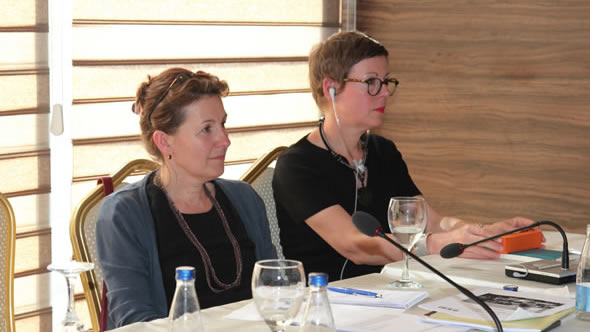
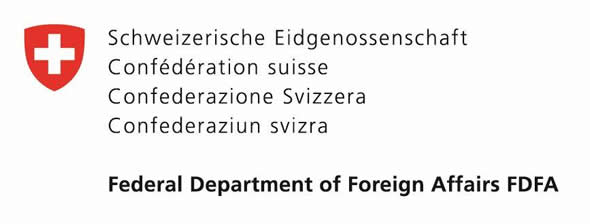
This event and the research was supported by the
Federal Ministry of Foreign Affairs of Switzerland
